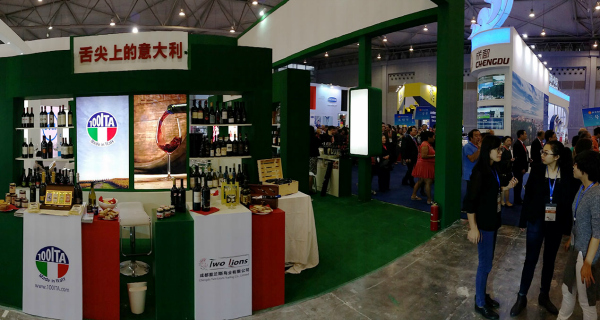
China is getting closer and closer to Italy, with food being one of the ideal candidates for boosting trade relations between the Peninsula and the great Asian country. Chinese consumers, especially those who have travelled beyond the Great Wall, are increasingly aware of Western food, which they have come to appreciate and, in some cases, know very well. Some, in particular those who have travelled abroad, perhaps to study or work for long periods of time, have become true ambassadors of our dinner table lifestyle.
IMPORT FIGURES – Even cheese, of which Italy is a top quality producer, is experiencing a small revolution in China: from being an almost impossible product for the palate of local consumers, to something to try and enjoy. The import figures are somewhat encouraging. In 2014, China’s cheese imports reached in January-August 2016 more than 64 million kilograms, doubling the 2012 figures. Estimates say that one Chinese out of ten buys a little cheese at least once a year. Fonterra, the New Zealand giant and largest exporter of dairy products in the world, has estimated that more than 300 million pizzas sold in China were made with its own mozzarella. And yet, mozzarella is a typical product from Italy, not New Zealand, thus Italy must regain its commercial role in the sale of these products. The historic agreement that opens the Chinese market to Italian pork meat products from North and Central Italy achieved after ten years of negotiations concerning the safety of our meat, is a key factor as it allows Italian companies to close the gap with the other European countries that were already allowed to export to China. Before that, Alibaba, had already (and finally) believed in Italian wine by launching the 9.9 operation. It introduced 500 Italian labels on Tmall, the B2C e-commerce website visited by hundreds of millions of buyers every year. Alibaba has also committed to fighting counterfeit Italian products within its platforms. This represents a great test of faith in the potential for growth of our exports through e-commerce, which, in China, is very important to prevail over competitors. China has become the largest consumer of red wine in the world, and Italian quality has all it takes to close the gap and be up there with these countries.
MANGIARSANO, THE EXPERT OF ORGANIC FOOD FOR KIDS – Food scandals that regularly hit China are a scourge for the country. Among them, the ones involving children’s food have had a bigger effect on international public opinion. This is the trend which the China-dedicated offer of the Venetian company, Gruppo Mangiarsano Germinal (already present in the Beijing area with Bio Junior, a range of baked products), aims to join. In 2015, it was the first European company ever to be certified by the organic food Development Center for processed organic products. Thanks to this certification, the Italian company can sell the products of its organic range, dedicated to consumers who are at least three years old, on the Asian market. For exports to China, the company relies on Purall Import Export, a Shanghai-based importer. Mangiarsano’s products are already present, among others, on the shelves of the Olé supermarket chain, which distributes many imports and caters to an international audience as well as to the so-called “white collars”.
